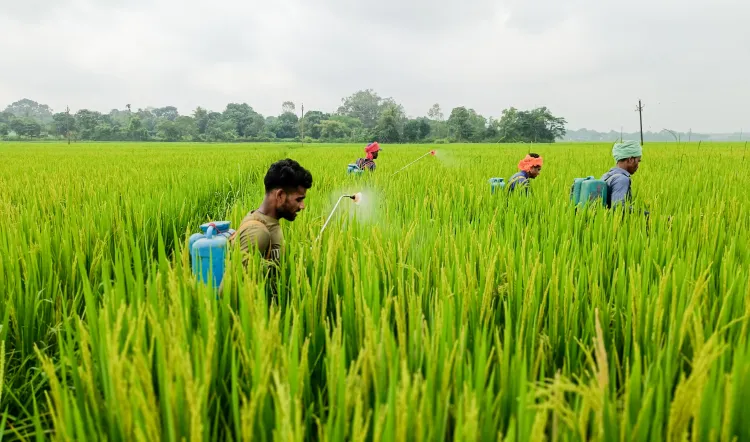Has Tension at the Assam-Meghalaya Border Finally Eased?

Synopsis
Key Takeaways
- Peace agreement signed between Pnar and Karbi villagers.
- Farmers can now resume paddy harvesting safely.
- Officials emphasize grassroots cooperation to prevent violence.
- Commitment to investigate the death of Oriwel Timung.
- Ongoing communication is essential for regional stability.
Guwahati, Oct 21 (NationPress) After weeks of escalating tensions along the Assam–Meghalaya border, a sense of calm was restored on Tuesday following the signing of a peace agreement between Pnar villagers of Lapangap in Meghalaya and Karbi villagers of Tahpat in Assam. This pivotal development allows farmers to continue paddy harvesting without the fear of disruptions, as reported by officials.
The breakthrough followed a significant coordination meeting held at the Assam Border Outpost in Khanduli, where officials from West Jaintia Hills and West Karbi Anglong districts engaged in discussions with community representatives.
This dialogue signifies the first positive shift since the violent clash on October 8, which resulted in the death of one individual, Oriwel Timung, from Tahpat village, intensifying local tensions. During the meeting, both communities resolved to uphold peace and fully support law enforcement efforts.
Authorities from both states committed to taking all necessary measures to ensure a fair investigation into Timung's death while safeguarding the livelihoods of farmers during this critical harvest season.
Senior officials, including West Jaintia Hills Border Magistrate G.H. Passah, West Karbi Anglong Deputy Commissioner S.P. Sarma, Superintendent of Police R. Barua, and traditional leaders from both sides attended the meeting.
The leaders collectively urged villagers to practice restraint, avoid provocations, and collaborate to maintain harmony along this sensitive border. The agreement to allow immediate resumption of harvesting is deemed crucial to avert potential crop losses that could exacerbate tensions further.
Officials stressed the importance of grassroots cooperation to avert any recurrence of violence.
"This marks a significant step towards rebuilding trust between the two communities. Our main focus is to ensure that residents can live and work in peace," stated a senior official present at the meeting.
Both administrations have also pledged to maintain regular coordination and swift response mechanisms to tackle any future incidents along the border. The accord has been positively received by villagers, who expressed relief that the agreement enables them to concentrate on their fields without apprehension.









